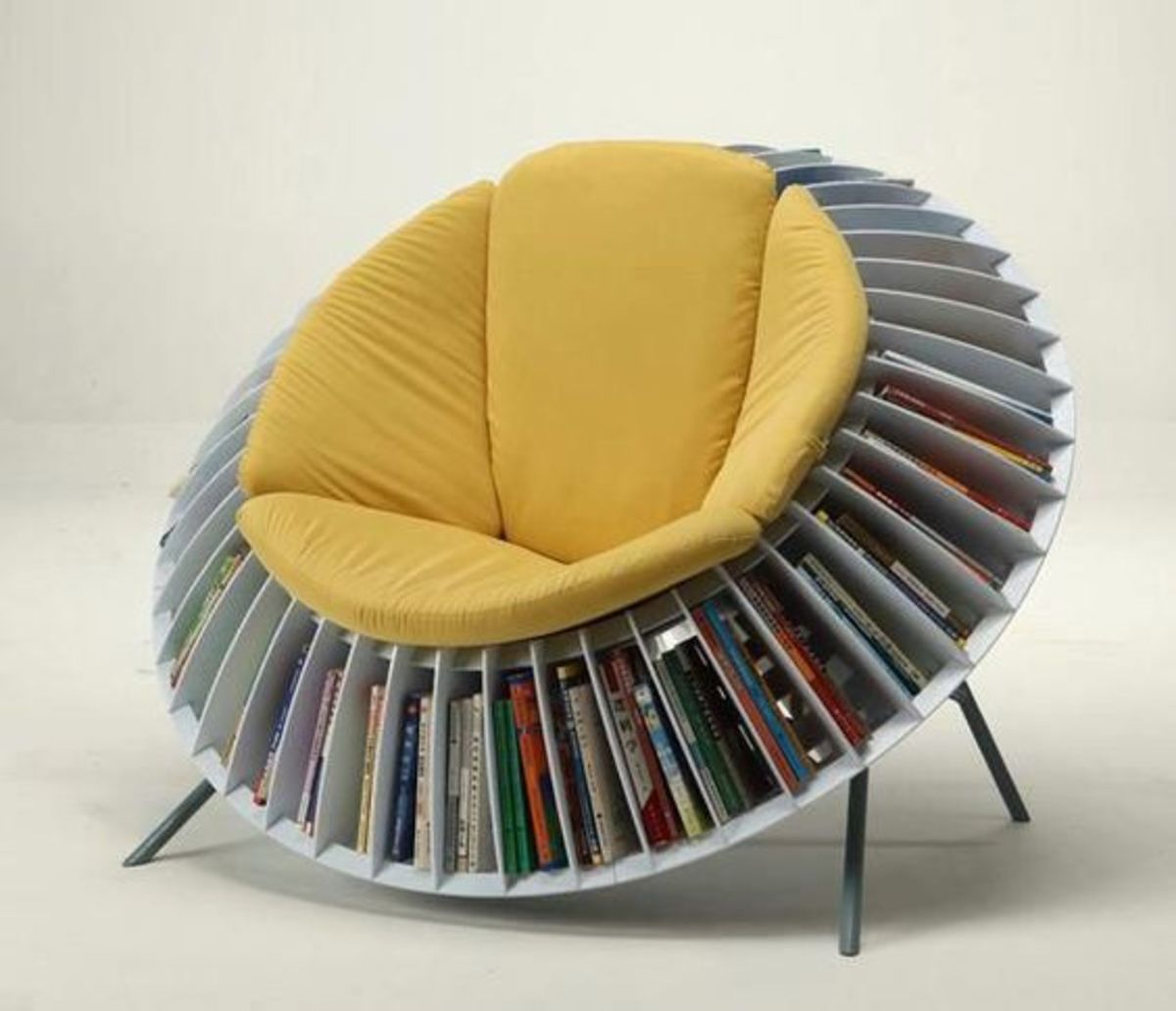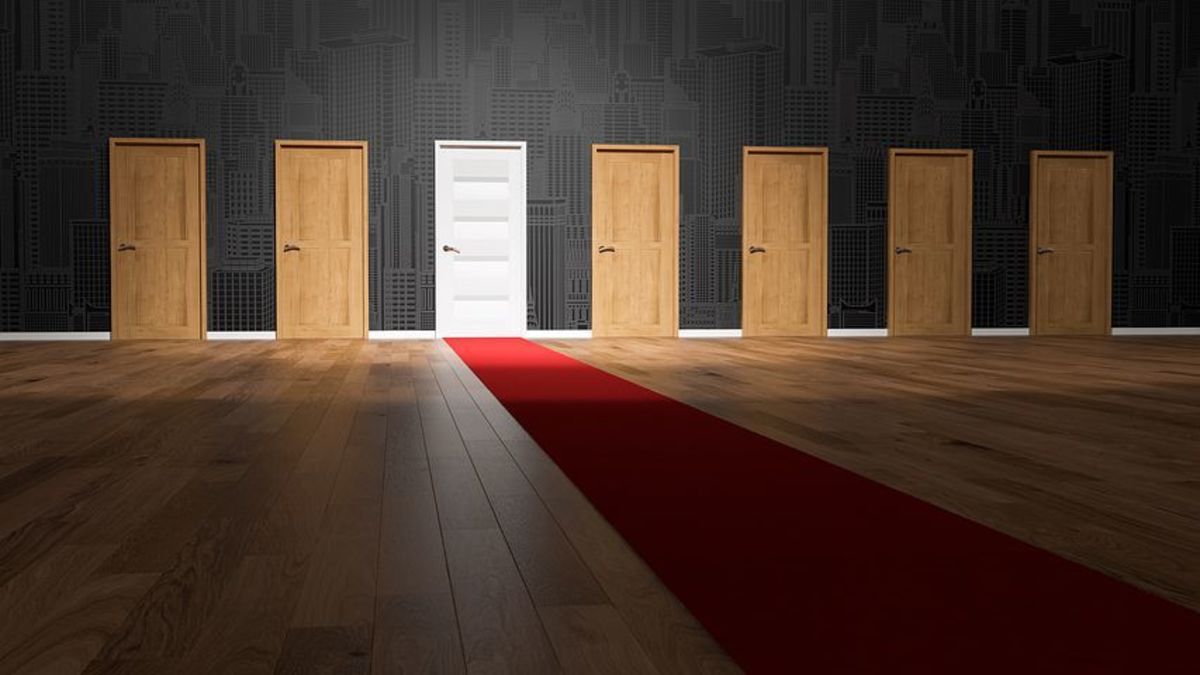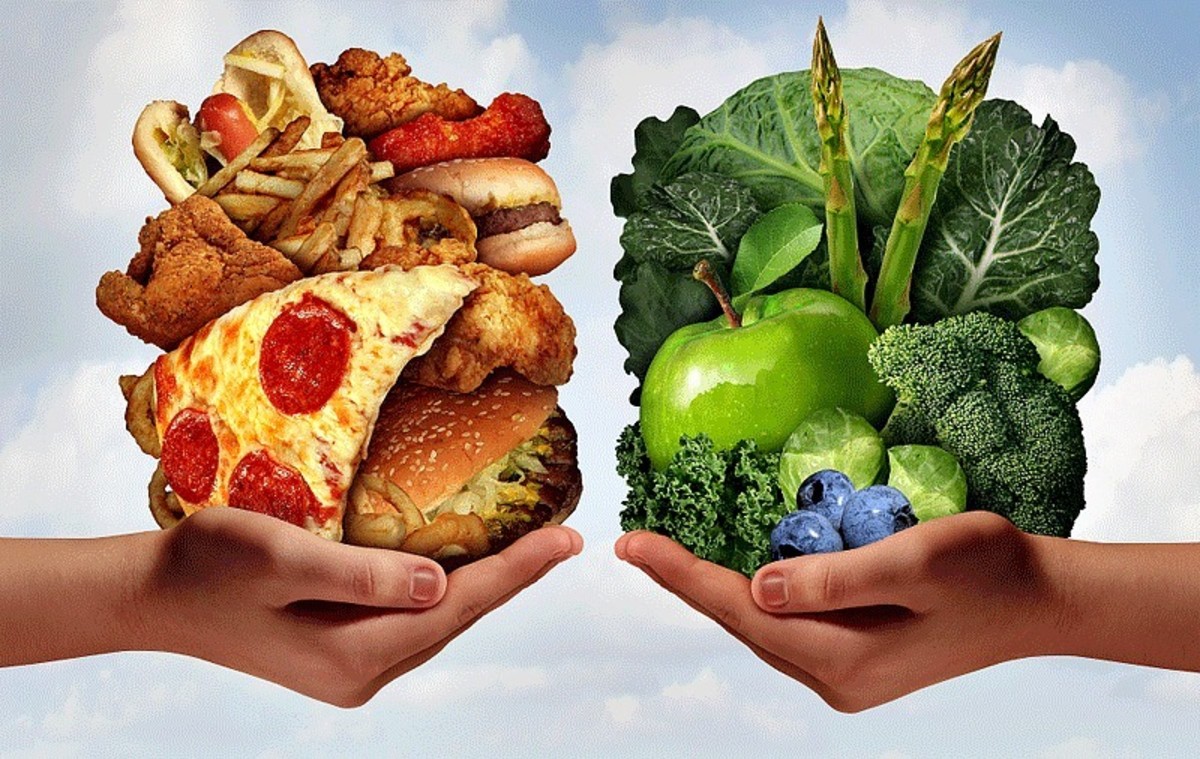How to Make Good Decisions
Free as a Bird

Decision-Making in General
I had to categorize this topic and had some trouble, because I wanted to write about the actual process of decision making rather than how it works in relation to anything else. I chose frugal living as the topic to classify it under because almost all good decision habits will lead to some degree of frugal living. People who are decisive are much less likely to waste either their time or their money. So I'll focus on frugal living as an example.
Keep in mind though, that decision making skills apply to everything in life that isn't money too. They apply to who you make friends with and spend time with. They apply to who you choose to date and maybe settle down with. They apply to how to raise your kids, what religion you are, what relation you have to the spiritual, what communities you belong to -- to everything in life. We live in a free country.
What does that mean? What is freedom? What does it entail?
Freedom means responsibility for your own decisions. Not to some authority beyond yourself in most of them, you need to be responsible to yourself and your own beliefs. I get amazed at the number of people who live with unthinkable levels of hypocrisy, believing something is wrong and doing it constantly anyway, without either the honesty or the self honesty to either change their behavior or their beliefs. This is a recipe for heart attacks and low self esteem, anyone caught up in that cycle is not even enjoying whatever it is they indulge because they're always beating themselves up for it afterward.
Yet it's so commonplace you probably have one or two sterling examples come to mind just at my mentioning it. People who have gone on for years spouting one thing and living another. It could be anything from unfaithful spouses to spendthrifts who believe they're frugal to extreme churchgoers in ascetic faiths who revel drunkenly the night before and get used to the Sunday morning apology in the pews.
That is normal. It's frighteningly normal. It's socially acceptable to be indecisive, to ask for others' opinons, to ask permission from people before doing anything. Decisions as petty as what you're going to eat tonight or watch on TV become the focus of hours of agonizing indecision or circular go-nowhere arguments when aired with other indecisive people for the group round of indecision.
People in that state tend to wonder why they don't get promoted. If they decide to become self employed, they wonder why the business doesn't take off and don't notice that they have put more time into worrying about the business than actually doing the work and marketing the business. If you have ever crashed a self employment choice because you didn't have to set the alarm clock to someone else's schedule, the problem is a gap in skills, not some basic flaw in who you are that will make you forever indecisive.
Self employment demands self-direction. Period. Don't do it in anything but an emergency if you don't already know you can trust yourself to do what you set as your own goals. Or learn that skill fast and get brutal on yourself like the worst boss ever - it can be learned. It's just hardest while learning. Use whatever works, including finding a good book on time management and just treating that as your temporary authority till trial and error give you the personal you-fitted schedule that works for you.
The decision to buy and use such a book takes some humility, but that moment of humility can pay off big time if you stick to that decision.
Let's set aside the extreme demands of self-employment and just look at frugal living decisions. It's a pattern, it's a focus, it's not the sudden overwhelming crush of having to decide what you think about everything in the world and what you believe in or not in churches, it's a specific, more manageable topic. That is an example of the first step in taking charge of your life.
Pick a direction..
You're not going to solve all the problems of your life in one decision. Give that one up. It doesn't work that way, unless your idea of solving all the problems of your life is to join a cult and give all of your time, effort, emotion and money to whatever guru is running it for his purposes. You'll get used, you might be happy in that mindless process, but you're also getting ripped off big time.
People get taught throughout their school years not to decide things. To answer to authorities, to live with policies they had no hand in setting, to show up on time, punch a clock, stand in line and do what they're told without question. This is no preparation for real life. Real life hits recent graduates like taking an 18 year old zoo lion out and dropping it in the middle of Africa without any hunt training.
The poor critter spins around in circles and does nothing for a whlie till someone else picks a direction. Sometimes that's their parents. But if they disagree with their parents' decisions, there comes this sudden lack of pressure at the other end because Mom and Dad are done raising them. They're out of school, whether that be college or high school. They are, presumably, adult and ready to get on with living.
That can be terrifying.
Up to that point in life Mom and Dad made all the little humble day to day decisions that are not obviously political or spiritual or would take a long stretch to start looking at them that way anyway. The decision of whether to get mozzarola cheese or cheddar. The decision of what time to sleep at night and when to get up in the morning. The overwhelming decision of going out to apply for a job and the nightmare horror that results when you don't get hired after putting in that first application.
"I don't want to decide yet" is actually a decision. But if that's your decision at that point in life -- choose it honestly and set a time limit. Make it a goal. "I am going to just goof around for a year before I settle down and choose a good occupation. I'll get an easy no-brainer job and enjoy life, take some time to think things over." Or "I'll travel, do temporary work, see other parts of the country, decide where I want to settle when I get there."
The decision to not decide right now can work for a lot of the big decisions. It's saying "I don't have the life experience to decide this one and I don't want to just settle for the first thing I drift into. I want to try a bunch of different things before I find what makes me happy."
That is a big important part of decision making.
It's the one that never even gets mentioned. Yet it's right there in the American ethos: "Life, Liberty and the Pursuit of Happiness."
It takes some pursuing. The lucky people who fell into it at the first accidental grab are very few and very lucky. Most people do need to try a lot of different things before they find the direction that's right for them. But the pursuit of happiness is a sound healthy root to grow a good life on. If you are genuinely happy with your work, you enjoy all or most of the processes involved, you feel a sense of satisfaction when it's done well and you're proud of it, then the enormous amount of time and effort you'll spend at work is not wasted.
What you choose in life is going to affect you most of all. If it wouldn't make you happy for some huge personal reason -- you're physically active and love being outdoors but got funneled into office work instead, or you've got serious physical impairments but kept getting routed to physically active work like waiting tables -- you're going to be set up for failure and misery, beat yourself up over things you can't control and waste a lot of your working hours working harder than anyone else for less reward than anyone else because you're forcing yourself to do it.
I mentioned physical logistics there because I fell into that trap. I have physical disabilities, serious impairments, enough that even when I was much younger I should've applied for disability right off and gotten it based on my parents' income. Worked upward from that at that age rather than try and try again to keep up with the abled. But someone who's naturally vigorous and active who doesn't have those impairments, hates being indoors, would be nearly as miserable in an office job. Office jobs weren't as hard on me when I was able to do them. It took only a week to get fired from waiting tables because at my best, I could not move fast enough to do the job at a standard pace.
No one wants their dinner delivered by an exhausted person dead on their feet who's barely managing to stay awake and function. That makes the management look bad, like they're working their employees to the bone -- when they weren't, not the ones that were capable of the job.
On another axis -- natural sales people are "people people." They love customer contact, get energized by the exchange. They're eloquent smooth talkers, love making a presentation, like attention, extroverted, happiest when around people and do not have some overwhelming personal ideology against consumerism and sales. As soon as they try any easy to get sales job, they do so well in it that they know they're on the right track. Later on they get savvy and skilled, choose the best situations for their specific talents which may be commission-only because those are the folks that always get their quotas.
Anyone else tries telemarketing for a week and doesn't make quota, thinks there's something wrong with them and finds out it's not their thing. In fact, some natural sales people don't make it in telemarketing because it's scripted and they do better ad lib. But they'll find something to sell, it's a skill set that grows naturally in context.
So there are a lot of personal factors about who you are that can make your choice of occupation temporary or permanent, joyous recognition of a perfect fit or absolute misery -- and this doesn't mean the rotten job is that rotten for everyone that does it. Some people honestly prefer to have their work time so delegated to others that they don't have to think about the work to do it -- just relax and daydream and get it done so they can get home and get back to what they really would rather be doing.
They might be a bit happier to find a way to make what they'd rather be doing an occupation, but by and large they do all right. It's also a good choice for a type of job that's low stress and leaves you room to plan for the future without making a commitment. Delivering pizza and such jobs will make a living if you keep your expenses down while you decide what you want to do for the rest of your life -- or whether work is a big deal in it and whether you'd rather go on just keeping the pizza job so that you can do something that really doesn't usually pay as a living, like write poetry or collect comics. It can turn into a living later on but that's only after much expertise is gained and much time and effort has gone into it.
Or you may decide you don't want the constriction of market demands on it and would rather continue to do it on an amateur basis.
That's a decision too.
The key to the Happiness decisions is to know yourself. Pay attention to who you are as an individual, to what you like and don't, to look at life decisions intelligibly and set goals based on you -- what you really want.
That takes some life planning.
Big decisions, little decisions
Big decisions are an emotional high. They can feel so right. "I'm going back to college on a working-adult program" or "I'm going to move to a climate I really like, I always loved that state ever since I went on a trip once" feels like you've discovered the secret to Life, The Universe And Everything. It's exhilarating. You know you're being brave. You know you're being independent.
It's those little decisions that go along the way to making the big one happen that can turn into waves of neurotic indecision and misery, tying up more time in worries and self created stress than actually doing what's needed would take.
Planning means looking at the likely consequences of the Grand Decision. Then accepting that you will not be able to see the ones that are in your blind spot. That whole areas of decisions and adaptation to your own choices are going to hit you between the eyes like you stepped on a rake because you did walk off into the unknown and the Unknown is full of surprises.
Some of them are wonderful. It's worth taking off into the unknown. You might find out the weird job you took as a stopgap is so satisfying it was better than the one you were going into training for. You might find out the cool place you thought you wanted to live isn't as cool as the place you went with some friends for a weekend six months after getting there. You might find out that despite thinking you were an early bird, you're really a night owl and graveyard shift work suits you well.
Others are just going to turn into problems that need to be solved with more decisions on the spot, because life is complicated.
Most young people especially have huge gaps in life skills. I am not kidding when I talk about people having trouble deciding what to get at the grocery. Every male roommate I've ever had under the age of 25 has had that as a major problem. Mom used to do it. Mom sorted out how much to spend on food -- guys grow up without any idea of how much money to set aside for buying food. I went through this too.
I speak from experience. I'm just old and overcame it by trial and error decades ago approaching it from another angle. I was a serious fussy eater and had some food sensitivities, so when I got on my own and could choose what I wanted to eat at the grocery, I reveled in it. I got the things I liked and never bought a bean again. It was such a big deal to me not having to eat beans that I paid more attention to what I liked over anything else.
This did result in food tastes that left my nutrionist daughter groaning in despair, as many young men do, I had the four main food groups. Greasy, Salty, Sweet and Meaty. They can be combined in any number of ways but the less preparation they take, the better they are, right? So I had some malnutrition problems on avoiding cooking, but did learn over the years as soon as I decided I wanted to put more money into art supplies and books than food, that I could actually fry a hamburger, that some vegetables were actually good when cooked, and so on. It was a long slow road and I must thank my daughter for some of it, because she has shown me that a lot of processed "health" foods aren't as healthy as the packaging indicates and taste better if made from scratch with real ingredients.
The frugal-living broad decision is this one:
Food that gets cooked by other people and served to you somewhere else is the most expensive. Eat out once and you could live on that for a week.
Food that is prepackaged and prepared in factories by and large isn't as nutritious and is often overpriced. If you skip that in favor of its raw materials and cook them yourself, it gets even cheaper than that and you can afford steaks and butter.
Food made by you from raw materials is going to taste better than either of the above because you will fix it to your own tastes. A steak at home is better than a hamburger at a restaurant and probably cost less.
The catch: learning how to cook is a pretty complex skill set. I recommend The Joy Of Cooking, it's old but encyclopedic and has the fun stuff in it like how to kill a chicken or dress out a deer carcass along with all the specialist jargon explained, the actual recipes that don't flop if an amateur tries them with actual food at home. Other cookbooks are all right, the Betty Crocker one is strong on desserts and treats, but that was the one I actually taught myself how to prepare food on.
Look up what you want to eat, read all the relevant sections, then get the raw materials and follow instructions. Make notes if you changed anything to make it taste better. Do it your way. Substitutions can taste a thousand times better because you're one individual with your own personal tastes.
That change in habits, from the expected "I have money in my pocket, I'll eat out someplace I like every night" to "Wow, I have a ton of money left over now to get toys and I really could get all that stuff at the art store/computer store/etc." is what frugality is all about.
Women who do learn how to cook in Home Ec classes and at home, by and large they do still get these skills, are sometimes just as lost when the basement floods or a light switch breaks. A guy goes out to Home Depot, goes down to the light switches aisle, buys a book maybe if he grew up in an intellectual family where no one did that kind of practical thing and at least approaches the problem with less fear. But women do need to learn that home repair is one of those things that helps in an apartment and is absolutely necessary if you own a house.
If you call in someone to fix it, they will charge you a lot of money and maybe be careless about it in the process, charging you even more.
So what this points to is enlightened, educated personal responsibility. Making the decision to learn new skills is always a good decision. The more you know, the more areas of life you feel competent in and the more things in life that you can do it your way instead of just taking whatever's available and hoping for the best.
It's these little things in life that catch people unawares. The decisions of where to put your stuff when you move into your first place on your own is enormous, overwhelming. There's only one real way to find out where everything goes.
Decide where it goes and then be ready for some trial and error. You will find out fast if putting everything into the medicine cabinet in the bathroom to keep counters clean and empty works for you or not -- or if in reality you wind up organizing by most-used things on the counter and least-used in the back of the cabinet. A lot of things like that in life involve decisions made by observing other people's habits and then finding out that isn't going to work as well for you.
A woman always cut the ends off her roasts whenever she bought a roast. When asked, she said her mother always trimmed the ends off roasts. When her mother was asked, her mother explained that her roasting pan was too small for most roasts so she trimmed them to fit into one particular pan -- and her daughter picked it up as custom and kept doing it even though she'd bought a larger pan.
A thousand habits in life are like that. They waste money and resources doing things "The way it's done" which is what you grew up with, that does not fit your current context or your height or arm length or tastes. Ergonomics comes into it.
The organization that puts important things in easiest reach for a five foot two inch tall Mom is not going to work for her six foot two inch tall son when he moves out on his own. He will creak his back and bend over all the time getting out important stuff while putting everything that's not important in his easy reach. This kind of habituation is hard to overcome.
Once you do decide to do things your way, then life will gradually get easier. This is where that "happiness" principle really comes into it.
Your life will not be greener necessarily because you put the pots on the personal easiest shelf to reach and the once-a-year holiday stuff in the hard to reach shelf. You won't necessarily seem to save money. What you will do is save time and effort, which means the time and energy you have for other things expands and you won't be doing expensive stupid things to run around the inconveniences built into your life by doing it the way you were told instead of the way that works.
This type of organization evolves slowly over time. It was extreme for me because I've got physical disabilities, a lot of household tasks most people take for granted as an unpleasant chore would be a joy to me if everything was lined up so that I was capable of doing it at all on a good day -- that's an extreme circumstance. But all the petty nonextreme things do add up.
They add up to stress and aggravation. You step on things, break things, drop things, get foods you don't like and wasted money on them, do things backwards and then get aggravated when little things in life go wrong. This is where stress-spending and comfort shopping can destroy your budget -- while compensating for bad decisions that may have been good ones for the people you learned them from by observation.
Mom's pan really was too small and cutting the roasts made sense, it was a good decision for her. If she really liked the short pan for other reasons (maybe easier to carry, fit better in the cabinet, did servings the size she liked) then she had all sorts of good reasons to carry on with it rather than just buy a bigger pan and be done with it.
Your life has to fit you.
The economic equation of modern life is that you need to do something for income, so that money is flowing in, enough of it to support you in the lifestyle that you are happiest in. This is not necessarily what society or the television or your parents told you it is. It has to be what actually makes you happy and healthy.
Happiness affects health profoundly. Misery and stress make people sick, drive them to an early grave with a host of conditions from blood pressure and heart problems to obesity from comfort eating and debt from medical bills driving it deeper.
The secret to becoming decisive is to question everything, no matter how routine.
Social Pressure and Decision Making
No matter what you choose in life, your occupation, where to live, who to go out with, your religion, there are a lot of people who will reject that on various grounds and put you down for it. Call you stupid or dangerous or wrong. Come up with your own list of insults. There are also a whole lot of people out there in the world who think it's the coolest thing ever and that you're wise, smart, elegant and awesome for doing things that way.
Knowing that, managing social pressure is a matter of choosing who you associate with and spend most of your time with.
First off, turn off the television. Every commercial on it is a screaming three year old applying strident emotional demands to irrationality because its purpose is just to sell you something with every mind game known to humanity. Filter that out. During a planning week, just don't spend any time watching television at all. When letting it back in your life, use Tivo or download programs, do something where you can edit out the commercials because they do distort perspective even on people who pride themselves on their sales resistance.
It is not in your interest to get hungry anytime some tasty food gets flashed at you on screen. You might look at that dessert with a full stomach and decide not to eat again, or you might resist the prices on the steak and lobster place -- but it's all too common that repeated reminder to eat sends people back to the fridge to grab something else they bought at the store last week. From this grows American obesity.
I've heard it called "Retail Therapy," the way that people will go shopping when stress gets to be too much for them.
Why "retail therapy" makes people feel better is the nature of the social exchange. If you go to a store or a restaurant, you are waited on by people who are paid to be polite and decent to you. You have choices and no one is weighing you on those choices, no one's supervising you, it is the one area of "normal life" where it's socially expected to just please yourself. This neatly diverts people from the obvious.
You can please yourself that much right at home for nothing. And if what you want is the social exchange of someone you don't know being friendly and respectful, you will get even more of that from a flea market where the people who are selling off used stuff cheap are enjoying the process of selling and have more time and energy per customer to do it. Knowing what type of treat you want for retail therapy, go somewhere it's cheap-yet-personal, accept that you are buying good service as part of the trip and be choosy.
Patronize small businesses, they thrive on delivering good service and don't grind you up the way big companies often do. People go out for retail therapy sometimes and instead of that happy experience of choosing a treat, wind up getting shoveled around, bullied and treated like dirt, yet stick to shopping in the same rude places at higher prices because of perceived status. Ignore that in favor of the reality. If you want to be treated well, find reasonably-priced small-budget treats with the best service.
Search around for that. It may not even involve money. I have visited some public libraries where the service was so good and the librarians so sweet to talk to and so helpful that I had Retail Therapy without spending a dime -- just by keeping up the library social contract of turning in the books on time.
The commercials sell an entire way of life that's wasteful and short sighted. Cutting them out means turning off a Greek chorus of self-interested companies who need you to go overboard on spending for what you don't need or want, to go into debt so they can collect more in interest, to lturn a good income into desperate invisible poverty by sinking you so far in debt that you will never get out of it no matter how well you do in life.
If you are used to asking advice on your decisions and need emotional permission for personal decisions, that makes you the best possible consumer from those companies' viewpoint. You are ideal. You won't complain too much if the product is shoddy or late or you get treated badly getting it. You buy the intangible social acceptance that isn't even real -- the people who made the commercials who are apparently cheering you on do not know you or care if you bought their brand of shoes, in favor of common sense in any decisions.
Frugality as a habit leads to more freedom. It sometimes means spending time instead of money on things that are cheaper if you do them yourself, like cooking. It sometimes means spending money instead of time -- it helps to look at those things as intimately connected. Sometimes you're better off choosing to invest the money in something permanent that will be cost effective in time than to make all decisions on a short term basis.
How to Plan
How to plan things isn't as simple as it sounds. Ten thousand organizers and pre-created organization schemes in books all have a huge catch to them, something every self employed person learns to do by trial and error.
However much time or effort or money needs to go into something, plan it the best you can and then mulitply that by three or by Pi. That will give you a realistic estimate of how long it'll take and how much work/money has to go into it. Just apply this to all plans. For some reason the three-times measure really works, it is consistent across a lot of different social classes and organization types, it's the difference between ideal conditions and the real world.
You can't anticipate everything that'll go wrong or plan for when you'll get the flu. But apply the three-times rule and you'll have time to catch up the one time you do get the flu.
This three-times rule also gives a fair chance of things coming out easier or ahead of schedule, which always feels good even if no one other than you is seeing the results. When it's your customers seeing results it will make them love you and return again and again.
Think about everything that could go right and everything that could go wrong. Don't get chilled to the bone scared of the things that could go wrong. Accepting uncertainty and unpredictability in the world is liberating. Because things can just as easily go unexpectedly right, and if you planned with the three-times rule then that unscheduled free time or extra money is exactly that, not already budgeted for something else.
Paradoxically, boredom is a problem too.
If you're frugal with your time, you may find yourself facing a Saturday afternoon when all chores are done and everything that had to be finished is taken care of or not scheduled till later. Without the habits of independence and decision making in small things, the unexpected happiness of a free afternoon can be terrifying.
Define some time in your week and time each day for impulsiveness.
Boredom is only a problem if you expect other people to take care of your emotions and to direct your every action and decision. It's a little kid waiting for the teacher to announce a field trip or something that breaks the drudgery. When you're an adult, that pattern is gone. Any spouse or roommate is likely to rush into the gap with a thousand things they would like you to do for them or with them.
But if you are alone and you got used to just following others' directions, facing the responsibility of a weekend afternoon free of all obligations is freefall.
It is the best time, especially alone time, to find out who you are and what you like. To make personal experiments. Wander outside your home on a ramble, down the street or into the park. Read something that you've put off reading. Go somewhere that you've never been, try something you've never done before but always wanted.
If you give it a good twenty minutes of thinking about all the things you always wanted to do but didn't have time for, you can come up with a pretty good list of things you'd personally find interesting. Cross off anything impractical, that you can't afford to do right now (but may want to later) or wouldn't have the time to do in the afternoon available. Then pick from the remaining list on impulse -- whatever looks most fun at the moment.
Maybe you'll go out and get some plants and put in some herbs in the kitchen window. Maybe you'll walk in the park and think about taking up drawing, grab scratch paper and sketch. Creative activity is one thing that feeds the soul.
I honestly believe creative activity is repressed in this culture. Don't worry about whether you're good at it yet or not, start from the humility of "Absolute Beginner" and take up something interesting that you always liked to see if you like doing it. If the process is fun. Hobbies are not worthless. Amateur creative activity is soul-fulfilling and is why so many genuinely happy people don't ever get bored.
They have something to do because they like doing things and don't need to be told to go fishing or make leather belts or draw or paint or play guitar. Find activities like that where the results of how you spent your afternoon are tangible. Coloring books are not just for kids -- in fact, coloring books are tremendously useful to art students because filling them can let you focus on understanding color and shading and the medium you use in them rather than worrying about how to get down a perfect sketch. The resulting picture is cool looking and satisfying, a little care with doing it will result in something you could enjoy hanging on your own wall.
Remember to please yourself in it. Sing. Sing when you're alone. Dance around and play air guitar. Get into things that are personal and expressive. Don't worry about what other people think of you -- the bliss of solitude is that absolutely no one is there to criticize you for what you're doing, it's successful if you enjoyed doing it.
Try a lot of things till you find your own direction. Any hobby that really grabs you can grow till it is self supporting, there's always ways to make it turn enough side dollars that you can afford to keep doing it without tapping your budget. Meet other people who are into it -- focus more on the ones that encourage and teach beginners than anyone who's too critical and discouraging. Ask yourself about any class you take for entertainment purposes if you felt more like doing it afterward or felt crushed and untalented like you'd never get it right.
Your hobbies can grow into occupations. Sometimes they slip-slide and trade places over years if you get too competent and like the side thing more than what you chose to do for a living. It's more dramatic when someone ditches a job they hate for a side income that was joyous, but it can happen even when the first job was a good one, gradually by competence. People change.
Your computer and Internet access are an enormous resource. None of the successfully frugal people I know have cut off Internet access. It's the free library of the world, it's an easy physically undemanding way to meet other people who share your interests, it's a venue for writing and creativity and it is a perfect place for entrepreneurs to do free-or-cheap marketing. So don't throw the baby out with the bathwater even if you decide who you are would be happiest living on a small farm doing everything organic and staying completely physical -- you'll market your homegrown veggies a lot easier with a good website so that locals can find and visit your farm to buy direct from you at the "leave out all middlemen" discount.
One big reason for this is that you will find social support for your decisions on the Internet. It cuts past barriers of locality and social class. online you're who you say you are and you're judged more on how you behave online than anything else about you.
Being able to make fast decisions in life, stick to them with resolution and change them as needed, to take charge of yourself, is socially attractive. People will ask advice, because most people are not used to making their own decisions and your voice will get stronger the more decisive you become. Beware this pit. You can spend more time and energy taking charge of their lives in detail than on your own and watch your life fall apart as you get the social strokes of appreciated leadership.
They know better for themselves than you do. You know better for yourself than any of them do. Including me -- if you enjoyed this article and it gave you some ideas for how to look at the process of decision making in life, then I've done my job right. But you might hate having to do creative things and find that a left-brained organizing-type hobby like tracking sports scores is your thing -- and it's just as valuable to the rest of the sports-score hobbyists. In fact, it can be turned into a side income if you do a good job at it long enough and then publish your compendium online with some ads on it or through print on demand to other sports fans.
Do the things that work for you. This is a meta topic. If you are efficient in how you spend your time, wasting the least of it on things you don't want to do, get the necessities done fast without wibbling so you can get to the good part, whatever that is, You can't neglect the necessities, that makes life crash. You can trim them to a large extent and simplify them. That leaves more time and money for the things that do matter most to you.
Don't assume that the happiness you get from helping others isn't real or doesn't count or dilutes your charity in some way. It's the most honest, least humiliating kind of help you can give someone if you're doing it because you enjoy doing that and you're honest about it. You could choose to spend every dime of spare money and every minute of free time helping people and still be tremendously happy -- because that is what matters to you. If that's who you are, don't be ashamed or deny it and don't pretend that's not what moves you. Find ways to do it more effectively and find the areas of helping others that give you the most joy in the results, because you will do more for them and yourself that way than going for the pan-size type of decisions based on what other people tell you is important to them.
If it makes you happy while you're doing it, you will have more energy for it and more stamina to see it through. You will get more results from it.
No amount of knowing that home gardening is the one step cheaper for food than buying ingredients at groceries would make it cost effective for me. My disabilities are severe, the amount of time and work needed to do what abled people could in a back yard for gardening is so high that I wouldn't have a life left, I'd probably also ruin the garden and waste whatever I put into the tools and seeds.
So look at your real abilities and potential when planning. Strip away what anyone thinks of it but you. Look at what you genuinely enjoy and do well -- most times people enjoy most what comes easy to them, what they do well. There's a broad variety in that. The ideas may be off the wall about it, but if you like gardening more than "real work" and your efforts are successful, you might be a lot happier as a landscaper than anything else.
Be yourself. The closer you come to pleasing yourself, the more pleasant you are to everyone around you and the less effort it takes to get along with those cool people who are already interested in the same things you are. Finding a place in adult life in the real world where you fit in does not involve cutting off whole chunks of who you are the way it did in school sometimes. It means rediscovering those chunks of self and then finding the places they are desirable and cost-effective to express them.
Don't overlook the obvious either. If you don't like something in your life, the obvious answer may have a less obvious way of doing it that'd make it work a lot better. If you're obese and you want to lose weight, you can eat less and do more physical activity. The answer to actually doing so might be calisthenics and dieting -- a common answer that has its occasional stellar successes because of all the social support it gets -- or it might be taking up something that has nothing to do with calisthenics but involves going outside and doing something physical that takes energy.
You could take up nature hiking or join the Society for Creative Anachronism http://www.sca.org and spend your exercise hours practicing to beat up other athletes with a rattan sword wearing 90lbs of real armor so that no one gets hurt -- and wind up toning up fast in order to have fun at the events instead of just to mark down numbers at the gym.
So look at the things that sound interesting and then look close at them for possible benefits and drawbacks in other areas of life. You are the one unique person that you are. You enjoy the things you actually do and are good at the things your genes, habits and background led you to try before. There's a lot more world out there with a lot more possibilities than life seems to hold in any bad situation -- the number of potentially good situations in life is always a lot larger than it looks in a bad way.
It takes trial and error to find them, and keeping track of the results of the trials. Don't beat yourself for failed trials. Don't say a Saturday afternoon was wasted if you spent all of it planning but didn't decide what to do on Saturday afternoons -- if you came up with some ideas that sound good next time then you're on the right track and it wasn't wasted. It's only wasted if you didn't enjoy it and it didn't move you forward toward your goals.
Goal Setting
It's a lot easier to get anything in life if you choose reasonable goals and then break them down into short term manageable goals.
First there's the big-picture exhilarating level of goal setting. The top level, the big goal. I made mine at age four. "I want to be a writer." Specifically, though I didn't have the term for it, I wanted to write science fiction and fantasy, stories that went outside normal life into wild fun weird storybook things. I liked those stories and knew I could make them up.
Getting there took a long ugly trip through a lot of bad attitudes, but "Get good at telling stories" is a subgoal for that. So was "Finish a story." Get one written that has an ending and isn't just a fragment. Little did I know back then that I was more cut out for writing long stories than short ones, finishing a novel was overwhelming.
"Finish a chapter in my novel" wasn't as overwhelming.
With a finished novel in hand I sent it out a lot of times, it didn't stick, I eventually self published it after falling for a bad contract with an agency that was associated with a conventional self publishing place I couldn't afford. One of those $25,000 packages like Vantage Press that are cost effective for niche nonfiction but not so great for fiction. They weren't familiar with the markets for my novel, sent it to the wrong places, gave no editing help and tied me into a bad contract, but I did get a lot of rejections and learned by their example not to send it to publishers that didn't have science fiction lines.
I self published -- a goal that did a lot to move me along the road.
I'm sending out novels again now after having written a lot of them. Doing online nonfiction tightened my prose and made me better at conveying a lot of information in concise, entertaining ways. Huge importance for a science fiction writer who needs to get across a lot of complicated backstory that may be unique to the book and necessary to the plot.
I sold two short stories. Selling a pro-level short story was a milestone, a subgoal. My next is to sell my first pro-paid novel with an advance. Yay and good but when I get that, it is not a career in itself, beyond that there's learning the skills of working with editors and marketing my book effectively, whichever one gets tossed over that particular finish line.
So a big goal takes a lot of little steps to get there. The more enjoyable and satisfying the little goals are to complete them, the more likely the big one becomes real, whatever it is. I have no doubt I will eventually get there, possibly with a side trip into selling a pro-paid nonfiction book because that does pay a lot better and would set me up with some financial stability, and because I discovered I like writing How To on art topics.
One of the most pernicious, self sustaining elements of anorexia is that anorexic people get so good at dieting and so used to it that the daily success of seeing the pounds melt away on the scale becomes a necessity in life, to make themselves happy. So when you have your big goals in hand and they excite you, sort it out so that there's a little daily pat on the back for moving in the right direction.
I also had to recover from a major surgery and a lot of complications caused by years of poverty and hard living. I was bedridden for a long time. My goals narrowed to things like "Get out of bed for the bathroom, I don't want to have to ask for a bed pan." Then things like "Get my own coffee so I don't have to ask for it and wait till it's convenient for my family." I have slowly been regaining bits of my Activities of Daily Living that used to be routine even for me, but were gone for years to that postsurgical debility.
Every time I get one of those back solid, it eases off the goals list and something else I want in quality of life rolls up ahead, that used to be out of reach and now it's not. "Get out of the house every day" could be a future one. I'm not there yet but I may make that someday. Just into the yard to see the flowers and breathe outside air, it would be cool.
What is consistent is that for decades I have had a daily goal, something that if I did it, I could relax and know that day wasn't wasted no matter how sick I got. Sometimes it was daily art, including even two-minute doodles as artwork, but I managed to do it anyway and post it online. Sometimes it was daily writing, at the time I was doing daily art I was so used to daily journal wirting that it no longer took effort.
So in planning your life, don't neglect the very short term goals that add up cumulatively. Maintenance is always easier than starting a habit. Adding new ones when what you were doing before doesn't take effort is a better balance than anything else, it leads to great achievements and overcoming even major troubles in life. Make sure whatever that daily goal is does take some effort, but that you could manage it with some effort even on the worst day you have dealing with anything else.
Then don't expect perfection, don't count missed days as anything other than missed trials in building the habits of success. You don't fail. That approach failed, that trial failed, it had reasons for it, accept those as reasonable and try again working out how to get around the obstacle. I found out some things weren't possible for me -- that I accomplish the most if I do not try to get up the same time every day, if I keep a fluid schedule and seize the moment whenever I'm up to anything no matter what time of day or night it is. But that's my disabilities. Most people do better with a set of natural habits, a comfortable biorhythm that may be "Night people" rather than pure diurnal.
Look at that in relation to what makes you happy and it's self discovery -- because night people do gravitate to night jobs and feel better on that schedule, enjoy the same work a lot more, adapt easier to shift work than day people trying to do it. Seeking happiness is going to eventually show you every body quirk, every genetic knack or problem, everything about you that's personal and unique on the physical level because what works well feels good and is more satisfying. Because pain and aggravation do wear anyone down sooner or later, going against biorhythms or natural abilities takes a lot more effort -- and thus it had better be that much more important to be worth doing.
Cost effective is the thing to ask. Not just in money but in time and emotional energy. If something has a net benefit to your life in terms of happiness, figure out why and keep it in. If it's not, then something else may be better. If it ain't broke, don't fix it -- what already does make you happy probably has some inherent reasons why it does that you may be able to tweak in more of that direction.
If that something is just watching TV or playing videogames, ask yourself why.
Don't just put down something that gives you real enjoyment without thought. Video games, especially online ones, give status and social support for familiarity with the game and skill at play. Skill at playing games can, in the extreme, lead to becoming a play-tester or reviewer, a game designer, if you know it that deeply you may well think about moving in that direction.
If you love movies, maybe reviewing them and becoming critical of them could be a direction to pursue. If you like sitcoms, maybe you could script them. Or maybe it's just that you plop in front of the TV because it's undemanding -- because you're stressed and it does not seem to stress you any more, it doesn't demand anything of you like staying awake for it. A lot of times television has the attraction of being able to rest, and a good long sleep or a vacation with real rest is what would re-energize a person to want to do more than that in their time off.
TV has its inherent stressors in the commercials and acculturation to passivity. I'm not saying here that it's a great way to spend your day off, only that if it's what you do most of the time when you're not at work, that something else in life may be going so bad that only doing nothing is fulfilling a deep need for emotional rest. It has in its favor predictability and lack of stimulation.
So maybe something else that could involve passive relaxation would be even better for loosening up the kinks. Or the social acceptance for your trivia expertise is part of its appeal. Think about why it makes you happy -- and turn it off when it doesn't, or do something else and leave it in background if it's not enough to engage you. I still think it's a lot healthier minus the commercials because that pressure leads to binge spending and binge eating, but that's something only you can tell whether you want to cut back on it or indulge or do whatever you want with your time and your life.
It's your life and I do not know what suits you best. I know what worked for me and how I arrived at a set of habits that made me decisive whether it's in plotting a novel, painting a picture or deciding what my next set of goals are. Use whatever works in this article and abandon the rest, suit yourself with it. When it makes you happier and makes you come out of it feeling like you achieved something real, then you're on track for doing what's right for you.








